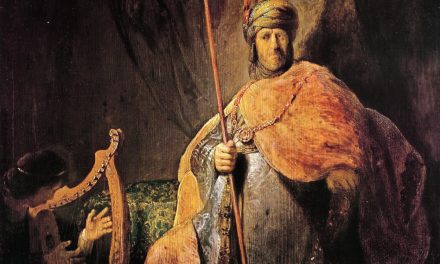In this installment of our continuing series, we hear from David Cloutier, associate professor at Mount St. Mary’s University.
I am grateful to be able to participate in this international series of reflections, although somewhat humbled and fearful to be representing that abstract reality called “North America”. Since my department chair is Canadian, perhaps that will help!
The basic facts of a decades-long transition are well known. Moral theologians in North America today are predominantly laypeople, serving as university professors with primary responsibilities for teaching required theology courses. Most are trained in a handful of highly-selective, elite doctoral programs, some Catholic, some ecumenical. Such programs mean that the most important scrutiny falls on their academic prowess, credentials screened before and during such programs by senior faculty; for tenure, they must also be skilled classroom teachers. While in some sense “re-presenting” the Church, their professional track has virtually no ecclesiastical oversight or guidance. I am a living example: academic prowess got me into an elite secular college and an ecumenical doctoral program. No bishop or priest ever judged my competence or credentials.
I think there’s a lot that is great about these developments. It makes for innovative, creative, very lively work. It is work informed by daily living in the world. It is done in relatively free and egalitarian ways by an increasingly diverse group (at least in terms of gender and, to a lesser extent, ethnicity). But there’s a lot that’s fragile and uncertain, too. In what follows, I focus on the fragilities of the present situation in North America, so that we can become sharper in addressing them.
David Tracy famously identified three “publics” for the contemporary theologian: the Church, the academy, and the wider society. Moral theologians in North America today look to all three publics, but it seems clear that the balance has shifted. A discipline that used to be practiced by male clerics concerned especially with the sacramental confession of sins within the juridical order of the Church is now a lay-dominated discipline whose members are primarily trained within elite academic settings and are driven by important issues affecting the wider society. There is an obvious shift from the first public to the latter two.
The shift is exacerbated by a set of rather peculiar facts. First, there is an increasing split between the larger field and a subset of moral theologians with quite different qualities and formations. While some lay Catholics do teach in seminaries and attend groups like the Academy of Catholic Theologians, these institutional settings feature many more clerics. Participants in these spheres, both in their training and their driving concerns, are far more oriented to the Church than to academic success and social influence. They increasingly have access to an alternative universe of publishers, diocesan and parish formation programs, and the like. One can browse through the bookstore at the Basilica of the Immaculate Conception in Washington DC and find the entire moral theology section dominated by authors and publishers completely different from (say) the tables at the annual CTSA convention. The peculiarity here goes beyond an aim at different audiences – increasingly, what exists are parallel Catholic universes which do not intersect.
A second fact is that mainstream theologians have their primary “pastoral” interactions with undergraduate students at Catholic universities. On the one hand, the extended opportunity to engage in study and dialogue with a real variety of students, enhanced by the “enforcement power” of grades, is something that pastors and religious educators might envy! On the other hand, it must be kept in mind that most of the Catholic Church does not consist of 18-22 year olds, and that most Catholics do not see the classroom as a central place for spiritual practice and insight (despite our best efforts). Thus, we are apt to make generalizations that are not very generalizable – and even more so insofar as (a) plenty of Catholics do not attend college or a Catholic college, and (b) Catholic colleges themselves differ quite significantly based on region, academic reputation, and the like.
A third observation: in either of the parallel universes, the reality of the contemporary Church is that we no longer have a functioning parish-based space of practice upon which moral theology is a reflection. The radical decline in the sacrament of reconciliation has not been matched by the rise of alternative forms of practice, such as small discernment groups, spiritual direction, or even intentional and intensive social justice work. To be sure, some Catholics engage in these practices, but most do not, or do so very sporadically.
The training of the mainstream combined with these three factors all point in the same direction: real challenges for figuring out how the moral theologian is supposed to be serving the North American Church! It is entirely incorrect, in my experience, to suggest that moral theologians don’t care about serving the Church. (Consider, as just one example, the report on this CTS open discussion of theologians articulating “what gives you hope.”) The question is rather: how does one do it? By writing popular books? By blogging? By trying to get involved in diocesan and parish activities? The answer is usually “all of the above” but I can’t help but feeling the whole thing is rather haphazard. Alasdair MacIntyre rightly warns: “Detach any type of theorizing from the practical contexts in which it is legitimately at home, whether scientific, theological, or political, and let it become a free-floating body of thought and it will be all too apt to be transformed into an ideology.” By “ideology,” MacIntyre means theories deployed simply for the purpose of gaining or defending power, in the service of convictions and views arrived at by other, likely non-rational routes. This is not simply a “liberal” or a “conservative” problem; it is a problem for all sides of moral debate, insofar as we lack a clear (and shared) understanding of the “practical contexts in which” moral theology is “legitimately at home.” And this is not meant to be an accusation of evil intent on any side; it is simply a recognition that a lack of clarity about shared practice makes it easy for theological debate to be conducted as quasi-turf-wars, rather than as potentially mutually enlightening discussion of vexed points of disagreement and confusion.
I certainly have no magic solution to this problem, but I do think it needs a solution or a cluster of them. Should we rework the sacrament of reconciliation to make it less juridical in form and more of an opportunity for ongoing conversion and discernment? Do we need a clear catechetical tool that is a common focus? (Until the Reformation, this tool was the seven deadly sins; then increasingly, it become the Ten Commandments. Could the cardinal and especially theological virtues be helpful? Or the Beatitudes?) Do Catholics have to think of the works of mercy (another tool!) as an equally necessary and regular component of faith practice as Sunday Mass is, such that “practicing Catholic” doesn’t simply mean “goes to Mass every week,” but “goes to Mass and does the works of mercy every week”? Right now, it’s just a hodge-podge, and it makes linking moral theology and parish practice spotty and difficult.
However, in service to the academy and society, we also have an odd role… and again, I’d say this applies to both parallel universes. Catholic theologians are not exactly the most welcome voices in academy and society. I confess that in many non-ecclesial settings, when asked what I am a professor of, I say, “I teach ethics,” rather than “I am a Catholic moral theologian.” “Ethics” usually elicits more interesting conversations and less prejudicial baggage! I am fortunate to teach at an institution in which the theology department is highly respected by other departments; this is not always the case, and theologians worry about the respectability of what they do. I discovered this year that if I want media platforms, a papal election is far more likely to bring calls than is a report on the state of marriage or an economic crisis. For these, they will bring in the sociologists and economists! Meanwhile, who’d have thought in 1900 that the US Catholic bishops would become the prime spokespeople for religious liberty? An issue on the Syllabus of Errors is now a defining mark of the Catholic faith? Worries that at least some bishops appear too much as apologists for the Republican party and for conservative ideology hamper engagement in the academy and society. Catholic moral theologians have the opportunity to be quite creative in the academy and society, but I don’t think the creativity will come from our conformity to the standard alignments, either in the academy or in the larger society. We can offer something different and better… but the risk in doing that will always be having a voice that is ignored or marginalized, because we don’t fit the narrative. We are not, in politi-speak, “reliable allies.”
This is ultimately why, in my view (and certainly this is arguable), the “priority public” should be the church public. It’s not the exclusive one, and I’d be the first to say that Catholics who cannot escape from a narrow ecclesial circle of conversation will not be as good Catholic theologians, much less as skillful witnesses in the world. But the priority is the Church. In a view inspired by an excellent essay by Paolo Prodi in Jim Keenan’s Catholic Theological Ethics Past Present and Future collection, I see bishops currently trying to have the Federal government uphold juridical rules that save the face of a teaching that the bishops have not made credible to the vast majority of the Church. They are relying on the public authority to enforce by law what Catholics should hold as a matter of moral conviction. But the problem is not all on one side: Catholics on social justice may spend too much time worrying about federal government programs, and not enough about what rich and professional Catholics (and Catholic institutions) do with their money. What if Catholic institutions created a giant investment fund by pooling their resources, and made Catholic social goals a real criteria for investment? Or imagine if Catholics actually started speaking out against the luxury cars in their church parking lots. I’m not against the importance of public rules and regulations, in either case. I’d simply invite us to recognize Prodi’s stinging point that Catholics are turning to influencing the state in order to maintain moral authority that used to be “enforced” (well or badly) through ecclesial means (i.e. the confessional and community custom). As I see it, the chief issue is to overcome divisions within our discipline by recognizing and constructively addressing this common need for renewed ecclesial practice. Without this development, all the social trends suggest that Catholicism will endure the experience of mainline Protestant churches, whose identity and purpose were insufficiently defined to maintain affiliation… except, in the Catholic case, we will retain a small, sectarian class of clergy and laypeople whose practice may end up looking all too much like a strange hybrid of pre-Vatican II piety and evangelical Protestant theology. I still hope that the renewal of Vatican II and the presence of the Holy Spirit mean that we can avoid this outcome!





I’m struck by how much the background, training, selection, and lifestyle, of academic theologians differs from clergy.
Certainly there is a need for ongoing dialogue between the two, and the wider Church.
God Bless